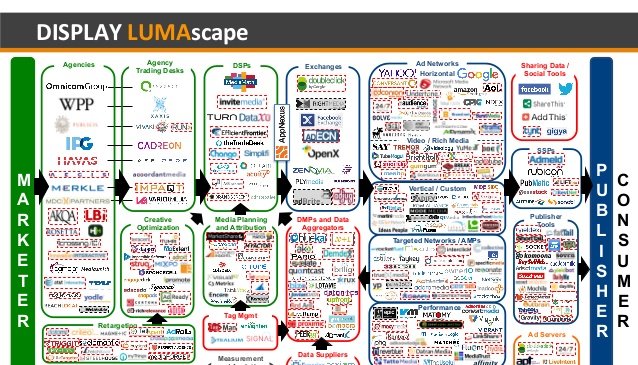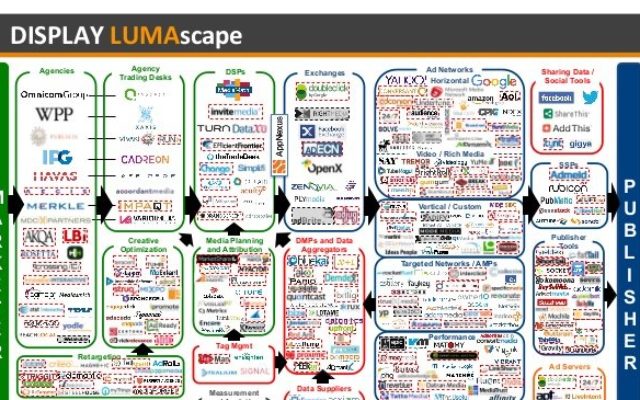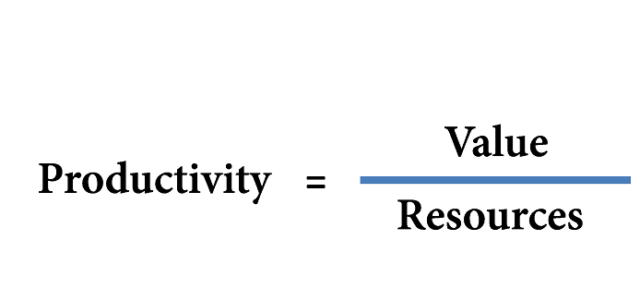In this short-as-possible post, I’ll dive into AD-TECH, because according to Video Ad News (VAN), the online marketing industry is sucking up substantial ad budgets from TV in the very near future. In fact, 2015 may well turn out to be a tipping point. This post covers a crucial question for broadcasters:
What opportunities does ad-tech hold for broadcasters?
First of all the threat: the TV industry is really starting to feel the impact of online marketing. The economic crisis is no longer a valid argument. Prices of commercial time slots are going down and the length of commercials on TV is going up in order to maintain the same level of revenues.
Opportunities in ad-tech are always bounded by privacy regulations within a country and this counts even more for public broadcasters. Having said that, I’m leaving it out of this post for the sake of simplicity.
The magic of ad-tech is that it enables advertisers (or more specific ad-agencies) to serve their ads to a more specific and relevant audience, retargeting potential customers with a smart customer journey, in order to realise conversion. Advertisers have the ability to know so much more about potential customers and online publishers about their audience. And the industry is taking out th e friction rapidly, promising a much more effective ad-strategy than TV can deliver (for now). With the rise of programmatic buying, also with online video ads, the level of sophistication is phenomenal. IAB has made a brilliant video explaining how it works.
e friction rapidly, promising a much more effective ad-strategy than TV can deliver (for now). With the rise of programmatic buying, also with online video ads, the level of sophistication is phenomenal. IAB has made a brilliant video explaining how it works.
However, the industry is in constant turmoil, because technology is getting better, customer behaviour is changing (towards mobile) and (big) data is handled more efficiently. This causes an explosion of new entrants, new services and also converging services. Take a look at LumaScape and two things become clear:
- The online marketing industry is a crowded industry
- The big players and usual suspects are in the game
Take a closer look, and you will probably have at least two questions:
- How will anyone outside of the industry be able to know whom to trust?
- Is everyone in the industry taking a part of the ad-budgets invested?
Indeed, the online marketing jungle is very difficult for outsiders to comprehend. A survey by Emarketeer shows that two thirds of marketing managers feel that they don’t know enough about online (programmatic) marketing. At this moment consolidation of the industry is taking place, however new entrants and new technology keeps changing the game.
And yes, everyone in the industry is taking a chunk of the ad-budget. Admonsterssays: Managing digital ad-campaigns can take up to 28% of the overhead, whereas TV ad-campaigns take 2%.
Today the trend in online marketing is twofold:
- video advertisement (pre-rolls, native) is emerging exponentially
- because of transparency issues, viewability and brand safety, ad agencies are largely retreating from the open ad-exchanges and buy foremost through (premium) private marketplaces.
In my view, all the above lead to a few opportunities for broadcasters when it comes to ad-tech:
- Broadcasters should actively step into the game of ad-tech (selling and buying of online ads), in particular video. They will have a more complete offering to advertisers than others. (RTL Group has already acquired SpotX a while ago, which seems to work pretty well for them). Also, the efficiency loss (up to 28%) means that money can be made or found….
- Furthermore, broadcasters setting-up a private marketplace can profit from their brand reputation and will attract publishers to join in and ad agencies to do business. Sanoma/SBS in the Netherlands, is a good example.
At the root of the strategy, however, should be the old follow-the-money principle: if ad budgets are leaving TV and flowing into online, you have no other choice than to follow.
Next post continues on Ad-TECH, and dives into:
What possible strategies can be developed on linear TV, as opposed to online?On the short term, targeting audience in a conventional way, and on the long term through addressable TV and dynamic programme guides.

Article by channel:
Everything you need to know about Digital Transformation
The best articles, news and events direct to your inbox






